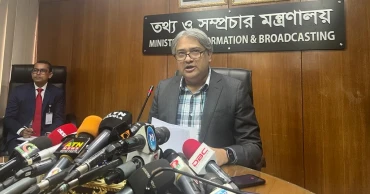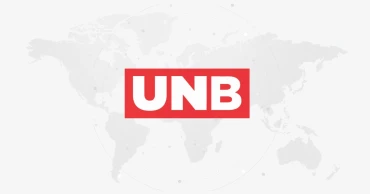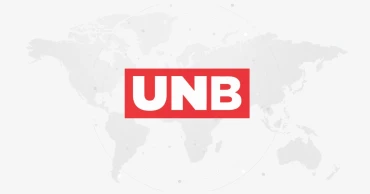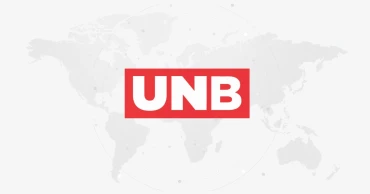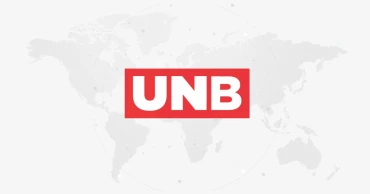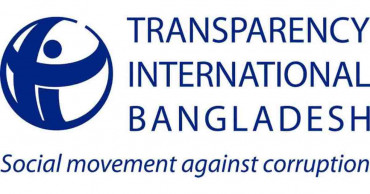Transparency International Bangladesh
TIB expresses frustration as ACC Ordinance approved without key reform provision
Transparency International Bangladesh (TIB) has expressed deep disappointment and indignation over the Advisory Council’s final approval of the Anti-Corruption Commission (ACC) Ordinance ‘ignoring strategically important recommendations.’
The recommendations were essential for ensuring transparency, accountability and institutional independence of the anti-graft body, it said in a statement on Friday (November 28).
The exclusion of “Selection and Review Committee” from the final ordinance despite being included in the July Charter is not only disappointing, but also indicates that like almost all other cases of reform proposals the state reform agenda has become hostage to the conspiracies of anti-reform circles within the government, it added.
TIB also questions whether by denying the provision to make ACC accountable as much as independent, the Chief Adviser, as the head of the consensus commission and the groundbreaking decision-maker to form the 11 reform commissions, is trying to send a message to all including political parties, that ‘state reforms are just a rhetoric for the Government.’
Read more: ACC’s year of mixed outcomes: 249 cases closed, yet acquittals dominate
Noting that the ACC Reform Commission had recommended the formation of a “Selection and Review Committee” considering the experience of the past two decades, the opinions of all stakeholders, international best practices, and the political and bureaucratic context of Bangladesh in order to ensure that the ACC does not continue to function as a tool of protection of those in power and harass political or other opponents, TIB Executive Director Dr. Iftekharuzzaman said.
“This proposal was made to overcome the dire situation of ACC as the institution has been suffering from a lack of public trust since its inception, as a puppet of vested quarters, it has become a tool of protection for those in power and harassment of opponents,” he said.
It is regrettable that the government has failed to understand the strategic value of this recommendation to transform the ACC into a truly accountable, independent, and impartial institution through half-yearly reviews, public hearings, and recommendations by the proposed committee, he said.
ACC’s year of mixed outcomes: 249 cases closed, yet acquittals dominate
“For a government responsible for state reforms, this is a self-contradictory and anti-reform precedent,” he added.
Dr. Zaman further said the matter is even more disappointing because according to reliable sources, at least seven Advisors have opposed this proposal at the Cabinet meeting.
“Yet they know that all the political parties that signed the July Charter have fully agreed on this provision. Before creating such a bad precedent of violating the July Charter, why the government does not realise that through this the Government is by itself actually encouraging political parties to violate the July Charter? Why then unprecedented bloodletting sacrifices were made? What kind of state reform is it that blocks the way to effectively curb corruption?” he questioned.
The draft of the ordinance that TIB had the opportunity to review seemed to be in some ways of a higher standard than the existing law for which the organization commends the government, it said.
TIB calls for full disclosure of agreements with foreign cos on Laldia, Pangaon terminals
However, the TIB Executive Director has expressed deep disappointment and regret as according to reliable sources, in addition to the mentioned issue several other important strategic recommendations on which political consensus was achieved have been omitted.
“This can be nothing but a corruption-enabling and anti-reform stance of vested interests and influential quarters within the government,” he added.
2 months ago
TIB raises question over move to appoint graft accused in ACC
Terming the government’s attempt to appoint an officer accused of graft in the ACC unacceptable, the Transparency International Bangladesh (TIB) on Wednesday raised question a whether efforts are being made to make it ineffective from within the government.
In a press release, TIB said the move raises concerns about whether the government is attempting to shield corruption and render the ACC ineffective.
Citing media reports, TIB Executive Director Dr. Iftekharuzzaman said the appointment of Amin Al Parvez, a government official accused in a corruption case related to land acquisition in Cox’s Bazar, has been canceled.
“We want to commend the ACC's decision to cancel the appointment of the accused officer,” he said.
TIB demands immediate cancellation of fossil fuel-centric energy master plan
He said, “The most pressing question is: On what grounds was an officer accused of corruption appointed to the ACC on deputation? This decision comes at a time when the ACC Reform Commission has explicitly recommended identifying corrupt officers and employees within the ACC, dismissing them through departmental measures, and prosecuting them. “
“Appointing an official facing corruption allegations—directly contradicting this recommendation—raises serious concerns. What message does this send? Given the current circumstances, it’s not unreasonable to believe that, rather than strengthening the ACC in the fight against corruption, efforts are being made to render it ineffective from within the government. In reality, this suggests a conspiracy within the administration to protect corruption. The government’s decision to appoint an accused officer to the ACC is not only unacceptable but also deeply alarming.”
Citing media reports, TIB said a case was filed against Amin Al Parvez in 2020 for embezzling 22.28 crore from the Police Bureau of Investigation (PBI) building construction and land acquisition project in Cox’s Bazar. At the time, he was serving as the Additional Deputy Commissioner (Education and ICT) in the Cox’s Bazar District Administration.
An ACC report later revealed that Amin Al Parvez had unlawfully benefited himself and others through fraud and abuse of power, it said.
“However, we urge the commission to treat this incident as a lesson and remain vigilant in all future appointments and promotions, particularly those made on deputation, ensuring that it remains free from undue influence. At the same time, the government—especially the bureaucracy—must refrain from undermining ACC reformation goals through such untoward actions,” said Dr Iftekharuzzaman.
“It is crucial to remember that the interim government’s duty is to set a precedent for accountability, not to tarnish its own credibility by shielding corruption or rewarding those implicated in it. Otherwise, how is this any different from the kleptocracy seen under authoritarian rule?”
1 year ago
TIB’s report on polls meet no international standards: State Minister for Info Arafat
Censuring Transparency International Bangladesh’s (TIB) research report on the recently held national election, State Minister for Information and Broadcasting Mohammad Ali Arafat said on Thursday that the TIB’s report does not meet international standards, and its statement is illogical.
He made the remarks while talking to reporters in the conference room of the secretariat in the capital.
“Those who conducted this research have no research experiences. They have no research work published in international journals,” he said.
Brick Kiln Tracker' to be used to detect polluting brick kilns: Minister
The state minister said the TIB's report has exceeded “scientific misconduct” and they are trying to mislead people with lies.
"I believe the civil society of Bangladesh will conduct research following international standards with honesty and sincerity and present its findings before the people," he said.
Calling the TIB’s report as its own opinion, Arafat said the Election Commission took action against those who violated electoral code of conduct and even cases have been filed against them.
Environment Minister stops burning wastes at Osmani Udyan
“In the report the EC’s strict position against irregularities was not highlighted, rather efforts were made to weaken the mindset by spreading lies,” he said.
"I can challenge the TIB, I want to challenge it; Let them send research to an international standard journal, they won’t publish it. If they publish, I will accept that they have researched it,” the state minister said.
"I can say with certainty that any journal of international standard won’t accept it as a research, let alone publish it. As it did not follow any method of international standards,” Arafat asserted.
Bangladesh, India to work jointly to ensure cyber security: Palak
The state minister also said that the report was prepared with absolutely misinformation and it is very sad but true that it has been done.
Questioning the experience of the researchers, he said l.
He said that the people who are involved with the so-called research have no experiences in the fields of elections and political science. Most of them do not have any publications in international journals.
2 years ago
'BNP agent’: Quader calls TIB
Awami League General Secretary and Road Transport and Bridges Minister Obaidul Quader today (January 18, 2024) said that the report of Transparency International Bangladesh (TIB) is “one-sided and anti-government.”
“They (TIB) are agents of BNP,” he said at a press briefing at the Awami League president’s office in Dhaka’s Dhanmondi this afternoon.
“TIB speaks in the tune of BNP. History says that they were always against Awami League. They speak for BNP. We could not find impartiality of their research,” said the AL leader.
“There are some organisations that talk about accidents. If a hundred die, they say five hundred died. TIB is like them. TIB and CPD said Padma Bridge is impossible. Filing a case doesn’t solve everything. Some are said for public perception. They will be dealt with politically,” he said.
Read more: Top 5% contractors account for 26% market share in government procurement: TIB
TIB in its report on Wednesday said Bangladesh’s 12th parliamentary election was “not free and not inclusive.”
Quader acknowledged the existence of political tactics and conflicts within parties, asserting, “Conflicts are inherent in politics, and Awami League navigates through them under the leadership of Sheikh Hasina. The party remains united in addressing challenges wherever they arise.”
Addressing upcoming local government elections, Quader said, “Decisions regarding local government elections, including upazilas, and the use of party symbols will be finalized in the Awami League board meeting.”
When asked who would be the opposition party in the parliament, Quader responded, “Clarity on the opposition party will emerge once the session commences.”
Regarding commodity prices, Quader noted, “Sheikh Hasina has provided instructions on commodity prices. Ministries are formulating action plans based on the ground reality, including price control measures.”
Read more: Even if action can’t be taken now, strong measures will be taken after election: Quader on those whose wealth saw abnormal increase
The press briefing was attended by AL Organizing Secretary BM Mozammel Haque, SM Kamal Hossain, Sujit Roy Nandi, among other leaders.
2 years ago
Even if action can’t be taken now, strong measures will be taken after election: Quader on those whose wealth saw abnormal increase
Awami League General Secretary Obaidul Quader has said that action will be taken after the election against those whose wealth increased abnormally.
“Even if action cannot be taken at the moment as the government is only conducting routine work, strong measures will be taken after the election,” Quader said in response to a question referring to Transparency International Bangladesh’s (TIB) allegation of discrepancies in the affidavits submitted by the aspirants for the upcoming 12th parliamentary election.
Read: AL Pledges to Expand Modern Urban Facilities to Every Village in Smart Bangladesh
The Awami League general secretary made the remarks at a press conference on contemporary issues at the party’s central office in Dhanmondi this afternoon (December 28, 2023).
In its report, TIB questioned the authenticity of candidates’ income, wealth, loans, and debt disclosed to the Election Commission.
The Transparency International Bangladesh (TIB) accused a minister, who remains unnamed, of owning “undisclosed overseas companies” engaged in real estate business abroad, with total assets valued at around Tk 2,312 crore.
Commenting on BNP's movement, Quader said the party has lost the support of the people.
“If there was public support [for BNP’s movement], no party would have to carry out sneak attacks to oust the government,” said the AL general secretary.
Read: In Smart Bangladesh Awami League pledges more safeguards for minorities, end of intolerance
Calling the incidents of violence in different constituencies “isolated,” Obaidul Quader said, "It is normal. No candidate will boycott the election.”
The candidates want to bring voters to the polling centres by convincing them, he said.
2 years ago
Top 5% contractors account for 26% market share in government procurement: TIB
Top five percent contractors account for 26% market share of government procurement, according to a Transparency International Bangladesh (TIB) study unveiled today.
Although the implementation of online-based government procurement (e-GP) in Bangladesh is almost a decade old, it has not been able to create an environment of fair competition, but the three-way nexus of government departments, political influential groups and contractors has given a new dimension to it, it said.
TIB made the remarks at a press conference on the occasion of the release of a research report titled "E-Government Procurement in Bangladesh: Trends Analysis of Competitive Practices (2012-2023)".
TIB rejects Cabinet-nodded Cyber Security Act-2023
“The e-GP process started as a very important positive step in Bangladesh, with the main goal of ensuring transparency and open competitive procurement in the public sector. E-GP has facilitated procurement processes, reduced processing costs, but market capture and monopolization in bid submissions and submissions has continued and has actually been institutionalised,” said TIB Executive Director Dr Iftekharuzzaman.
"The main message of our report is that a kind of market capture process has become fairly institutionalized in the government procurement process. However, the main purpose of e-GP was to control and prevent this market share,” he said.
The share of work of the top five percent contractors is increasing every year, on an average; about 30 percent of the work is in the hands of these contractors, said the TIB report.
The share of work done by the top five percent of contractors is increasing every year. On an average, these big contractors are getting more than 26 percent of the work and the bottom 10 percent of the contractors are getting only two to three percent of the work, it said.
TIB for formation of national green-skills strategy for youths
“Such a situation cannot in any way ensure the highest value of public money. We believe that due to political influence and three-way nexus of contractors with public procurement companies, on the one hand, the expected benefits of e-GP are not being achieved, on the other hand, there is a massive monopoly of the public procurement process,” he also said.
“Overall, we believe that if there is a will, the authorities can identify the weaknesses in the procurement process and take adequate action through the analysis of the existing data in the government database,” added the TIB executive director.
TIB urges involvement of relevant stakeholders in revising guidelines for foreign election observers
At the time, TIB presented six recommendations for the consideration of the concerned authorities in the interest of making e-GP free and competitive.
TIB Outreach and Communication Department Director Sheikh Manzur-e-Alam moderated the programme while Mohammad Touhidul Islam, coordinator of the same department, presented the keynote paper.
2 years ago
Israeli surveillance tools: TIB says without policies such move violates fundamental rights
Transparency International Bangladesh (TIB) on Thursday expressed its concern over an international media report on the Bangladesh government's purchase of highly controversial surveillance technology from Israel.
In the absence of specific policies, the use of such technology will pose a serious risk of undermining several fundamental constitutional rights, the graft watchdog body said in a statement on Thursday.
Read more: Govt on track to introduce ‘lawful interception system’ to monitor social media, thwart anti-state activities: Home Minister tells JS
People have the right to know the answer to the fundamental question that such a terrible tool was bought with public tax money according to which specific law and policy, for what purpose, in what context, in whose interest it will be used, it said.
According to a report by the Israeli media Haaretz, Bangladesh bought surveillance technology from a company run by a former Israeli intelligence commander, which arrived here in June last year.
In this regard, TIB Executive Director Iftekharuzzaman said people have the right to know the government's precise explanation regarding the purchase and use of technology that undermines the privacy, security, freedom of speech and expression of people's personal information and communications and, above all, threatens the lives and livelihoods of individuals.
“Nothing was purchased directly from Israel’ -- the government's interpretation does not mean that this Israeli technology was not imported,” he said.
The published news clearly mentions that the purchase was made through intermediaries in Cyprus at a cost of around Tk 60 crore due to the lack of diplomatic relations between Israel and Bangladesh, he added.
The National Telecommunication Monitoring Centre (NTMC) commander and other senior officials even visited Greece in 2021 and 2022 to learn how to operate this technology, Iftekharuzzaman said, referring to the Israeli media report.
Read more: Critical information infrastructure list is questionable: TIB
“If this information is false, it is the responsibility of the authorities concerned and the government to prove it. After all, there is no room for doubt that this technology has already reached the relevant agencies of the government.”
“There is no option to use this technology until a concrete policy involving all parties is formulated to ensure the constitutional rights of individuals. If not, Bangladesh will be considered as a completely surveillance-based state by trampling public interest,” he said.
3 years ago
Int’l Youth Day: TIB for suitable environment to utilise youths for development
Transparency International Bangladesh on Friday called for the creation of a suitable environment to effectively utilize huge unemployed youths in the national development.
One-fifth of the total population of the country is youth, but the unemployment rate among the youth groups is twice of the national unemployment rate, said a press release.
On the occasion of the International Youth Day (August 12), TIB placed a nine-point recommendation for ensuring the leading role of the youths in making sustainable development and building well-governed and corruption-free society.
The recommendations include providing youths with work-oriented education and skills as per the demand of the international labour market; allocating fund for the education sector as the recommendations of United Nations; ensuring that the recruitment process for all posts is corruption-free and merit-based; and creating employments through short-term, medium-term and long-term special plans alongside providing special intensives to restart the small and medium industries where many youths lost jobs.
Read:TIB demands a special law to protect journalists
Among other recommendations, ensuring uninterrupted education for girls and financial insolvent youths through special incentives, and the youths with disabilities, indigenous communities and socially disadvantaged groups through special measure; arranging special incentives for youth entrepreneurs and making the jobless youths fit for alternative professions through special trainings; and reopening immediately the recruitment, examination and verification process of all public and private jobs which now remain closed.
The remaining two suggestions are taking special initiative to bring back the Covid dropped out students to the classrooms; and ensuring privacy and freedom of expression of all citizens including youths and bringing necessary reform to the law and policy framework to this end.
TIB Executive Director Dr Iftekharuzzaman said the country’s traditional education is failing to create work-oriented skilled manpower.
"A recent survey says that 47 percent of educated people are unemployed in the country. The major reason is that the necessary skills to join the workforce can’t be acquired with the knowledge gained from formal education,” he said.
Although this problem is getting serious gradually, there is no concerted effort to address it, which is really a matter of worrying, said Dr Iftekharuzzaman.
He said the most alarming is perhaps the attempt to deny or conceal the true number of unemployed among the country's youth population. To come out of this trend, it is the demand of the time to introduce the employment-oriented educational system and take initiatives to formulate and implement policies, and allocate budget to create employment for the youths, he added.
3 years ago
Sweden signs 5-year grant deal with TIB
Sweden and Transparency International Bangladesh (TIB) on Monday signed a five-year grant agreement aiming to strengthen the existing cooperation in preventing corruption.
Under the agreement, TIB will implement its core project “Participatory Action against Corruption: Towards Transparency and Accountability (PACTA)” during 2022-2026.
In addition, TIB is supported by the Foreign, Commonwealth and Development Office (FCDO) of the UK and the Swiss Development Cooperation (SDC) of Switzerland in this project. Sweden will contribute 50 million Swedish Kronor (around US$ 5,340,000) for this project.
Also read: TIB urges ACC to clear the air about Sharif Uddin's removal
The signing ceremony was held at the Embassy of Sweden with the Head of Development Cooperation at the Embassy of Sweden in Dhaka, Christine Johansson and Executive Director of TIB, Dr Iftekharuzzaman, as signatory parties, respectively.
The project's overall objectives are to contribute to curbing corruption as means of developing a more inclusive, equitable and non-discriminatory society consistent with Sustainable Development Goals (SDG).
The project will involve more people in the social movement against corruption grounded on data-driven community monitoring to identify governance deficiencies, promote transparent service delivery and facilitate social accountability.
Also read: EC formation law: TIB seeks focus on public expectation
Speaking at the event, Head of Development Cooperation- Christine Johansson, said, “Combatting and preventing corruption is central to achieving the 2030 Agenda for Sustainable Development and a key priority for the Swedish Government. It is with great pleasure that I today renew our longstanding partnership with TIB.”
Expressing gratitude for the continued support, Dr. Iftekharuzzaman, Executive Director of TIB said they are honoured and inspired to sign this 4th successive round of partnership agreement between the Embassy of Sweden and TIB with the shared objective of strengthening the social movement against corruption in Bangladesh in order to achieve higher standards of transparent and accountable governance for inclusive development, social change and justice.
3 years ago
EC formation law: TIB seeks focus on public expectation
Transparency International Bangladesh on Tuesday demanded that the enactment of an EC formational law be done giving importance to public expectation and taking opinions from the civil society or all stakeholders.
It is a matter of optimism that the draft law was approved following the month-long talks between the President and registered political parties over the constitution of an independent, neutral and non-party election commission, a TIB statement said.
Read: Engage all stakeholders in formulating RMG code of conduct: TIB
“But it’s essential to finalise it (the proposed law) through a complete scrutiny and detailed analysis on the basis of the opinions of the civil society or all the stakeholders before the enactment of such an important law which will reflect a constitutional pledge. So, the draft law will have to be made public soon for all,” it said.
The statement came a day after the Cabinet approved the draft of the Chief Election Commissioner and Election Commissioner Appointment Act, 2022 in order to have a law in this regard as per the Constitution.
TIB Executive Director Dr Iftekharuzzaman said the sudden step taken by the government to enact the election commission law, reflecting the constitutional commitment and the long-standing public expectation, is positive.
4 years ago


